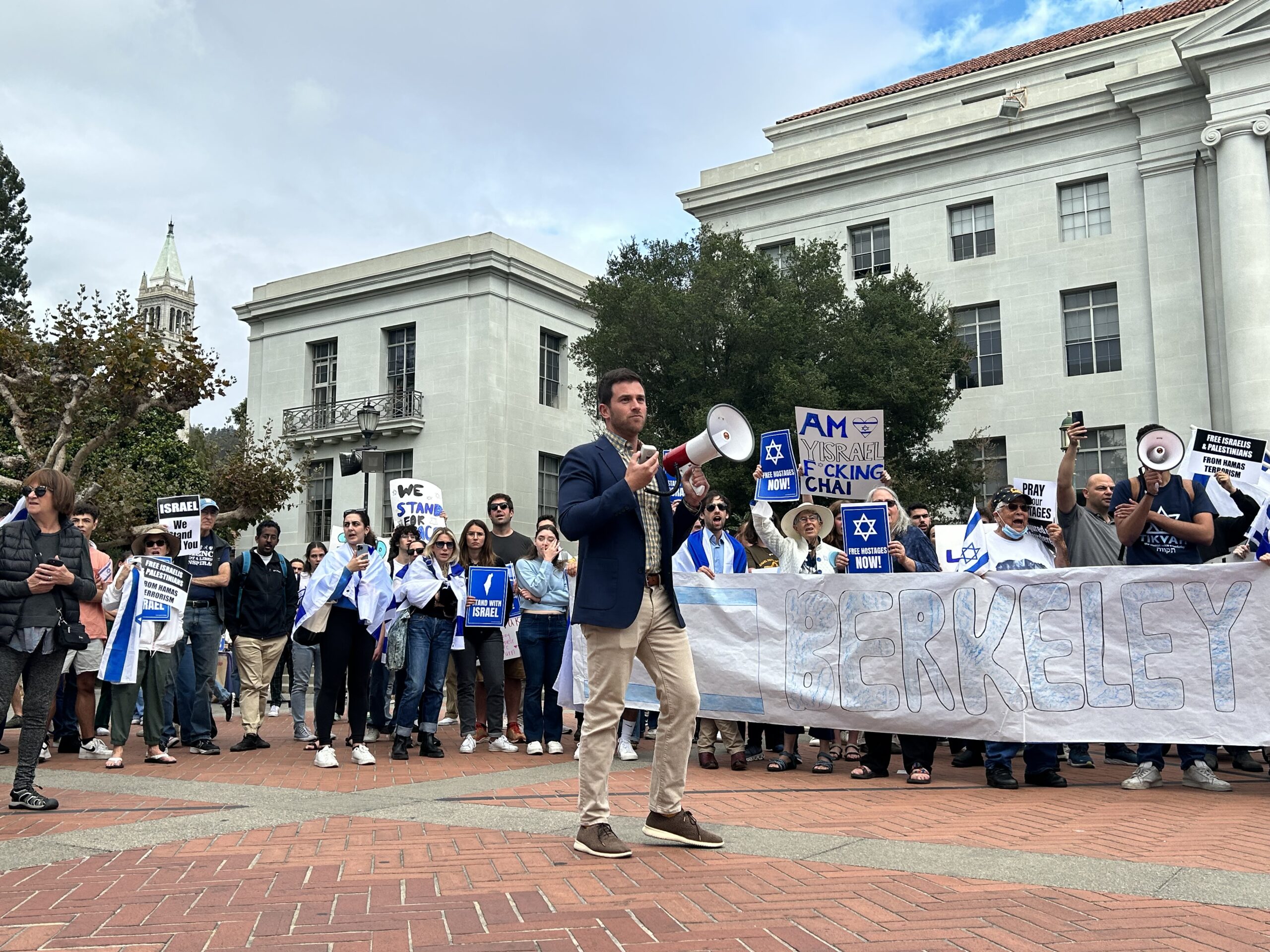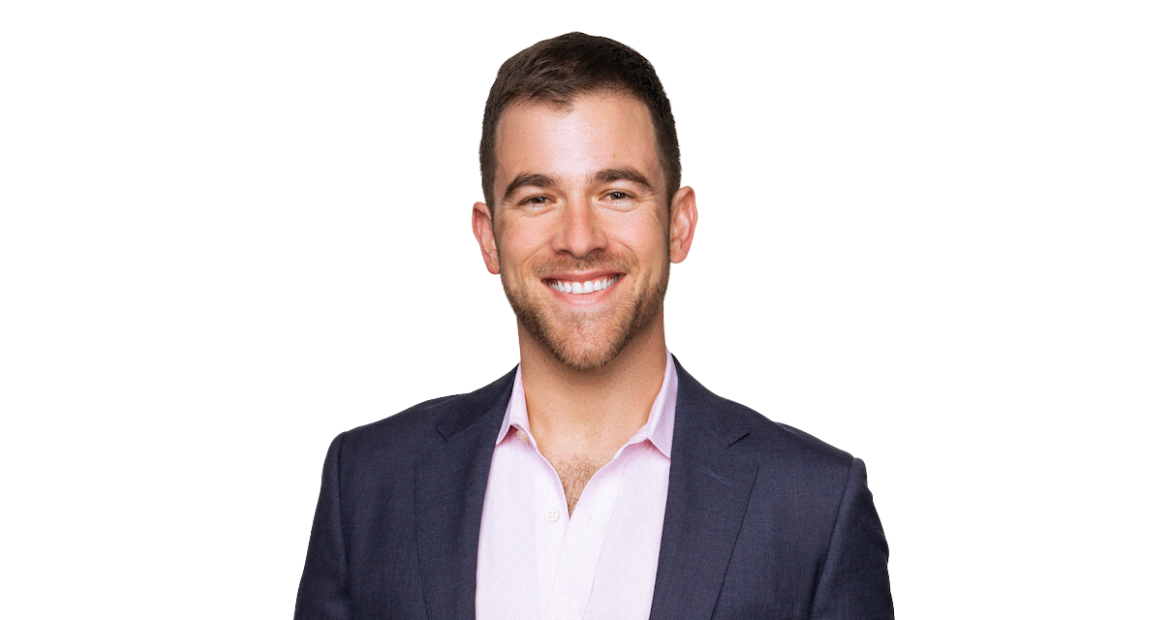As the CEO of the Jewish Community Relations Council Bay Area in Northern California, Brother Tyler (Tye) Gregory (UC Davis, 2010) works to bring people together and build bridges. Over the last few months – since October 7 – that has been an even bigger challenge.
A native of San Diego, Brother Gregory double majored in political science and economics and minored in Middle Eastern studies at University of California – Davis. In his Middle Eastern studies he felt discriminated against for his pro-Israel views. When discussion came up it was clear that the professor did not want to hear critical voices of her view point. His studies in political science helped later in his career while he was working at AIPAC, then Wider Bridge, and now JCRC, as Davis is close to Sacramento. “I had the opportunity to have an internship with the California Democratic Party during an election season. It really helped me understand the ins and outs of politics which is part of what I do.”
In the spring of his freshman year, Brother Gregory rushed AEPi and it became his main social network and Jewish community on campus. He believed that he could make a difference running for chapter president and was elected in the middle of his junior year
“We really wanted to lead the community with our values – both in terms of expressing our Jewish identities and increasing our philanthropic work. I think that we became a more visible organization during that time.” He found that there was a balancing act between being a Jewish fraternity and a social fraternity and there didn’t need to be any trade offs. “I don’t feel like American Jews should have to choose between their American identity and their Jewish identity.”
Inclusivity was also extremely important. Brother Gregory came out of the closet during his term as president. He was the first openly gay president in Chi Delta’s history. “That was a big discussion and thankfully it’s Northern California so it wasn’t a big issue but I think that was helpful because there were other gay Brothers in the chapter at that time, some were out, some weren’t. I think that was a moment of building inclusivity there where current and future gay Brothers could be welcomed in the chapter.”
During his term as President, Brother Gregory got to know then AEPi Executive Director Andy Borans who wrote Brother Gregory a letter of recommendation to AIPAC when he graduated. The job market was tight in 2009. “I don’t think I would have gotten that job otherwise. Both in terms of getting the right experience at AEPi but also thanks to the work of AEPi International for encouraging Brothers to take on leadership roles in the Jewish Community. It definitely played an important role.”
During his time at AIPAC, Brother Grergory worked in one of the harder parts of the country for pro Israel advocacy, California. “It’s very progressive and you really have to learn the hard way how to build relationships around an issue that is politically charged.” Through all his roles, including AIPAC, he believes that success can be found when building relationships and trust. “It’s all about whether you have credibility to educate about what your community cares about, what your values are and why Israel is important to us. That’s something that each one of the roles that I’ve had has taught me.”
Following his time at AIPAC, Brother Gregory served as Executive Director of A Wider Bridge, a national organization seeking to build a strong relationship between LGBTQ communities in North America and Israel. A Wider Bridge advocates for justice, fights antisemitism and LGBTQphobia and other forms of hatred and seeks to bring together Jews and non-Jews, members of the LGBTQ community and allies.
The work with these diverse communities was a good precursor to his next professional stint at JCRC Bay Area.
During the COVID-19 pandemic, Brother Gregory started his tenure as CEO at Bay Area JCRC, where building relationships was crucial. What quickly became apparent to him was that there was an important role for JCRC to play as the country became more divided.
Engaging younger generations of Jews is a priority for Brother Gregory. The Bay Area has the most diverse Jewish community in the country. “It means that we need to think differently about who is a Jew and what it looks like to welcome Jews into our institutions; but also that our work on Asian hate, racial Justice or LGBT rights isn’t just an issue of allyship, it’s an issue that Jews of color and queer Jews demand of us because they’re part of our community.”
Brother Gregory is also looking at what it means to engage the next generation of Jews. “It looks like caring about those issues, not only because of our values, but because we have Jews in these other communities or have this as a direct issue of Jewish concern. I think that’s really what’s motivating people, whether it’s racial justice or environmental justice, young people want to lead with their values and if the Jewish community isn’t standing up on those issues they’re going to walk away.”
Brother Gregory has spearheaded the Bay Area Network of Jewish Officials (BANJO), bringing together Jewish elected leaders from throughout the region. “We’ve built this association cohort of more than 60 Jewish elected officials around the Bay Area. Everyone from school board members, council members, mayors, to state legislators and taking them on a retreat to educate them, building that community to help them step out as Jews.” Some of these members are the only Jews on their city council and can feel isolated not knowing how to talk about the antisemitism going on in their communities. The initiative is about being able to build a central voice for them to be able to network with each other and tell them that it’s okay for them to lead as Jews in their elected offices. “That’s very similar to what AEPi’s mission is all about, building Jewish leaders for the next generation. This is taking that to elected officers in our part of the country. The hope is something that can be replicated everywhere, not just in the Bay Area. We saw the need to do it and hopefully we can set an example for other cities who might be interested in doing something like this.”
This effort has been particularly important in light of the October 7 terror attacks and their aftermath. “The Bay Area has become ground zero for antisemitism in this country. The far left has – since October 7 – followed the far right after Charlottesville in their antisemitism.”

Antisemitism is becoming commonplace throughout the country, in civic arenas, high schools and, of course, college campuses. “We have activists in City Hall at city council meetings spewing their ‘From the River to the Sea’ epithets and other messages of hate and it has become normal.”
“We were in mourning and shock on October 8. It was immediately clear that Israel needed to respond and that response would impact Jews in the diaspora. Throughout history, people always want to blame Jews and we’re seeing that again. We have a history in this country of doing that — blaming a group. This has taught us a lot that a lot of people were in denial about antisemitism and – especially – the far left. We need to do what we can to get rid of this cancer.”
Leveraging the relationships that he and the Bay Area JCRC have developed with elected leaders has helped to establish a strategy to counteract the rise of antisemitism. Brother Gregory is planning a trip to Israel soon for local elected officials – both Jewish and non-Jewish – to bear witness to the atrocities of October 7. “We need to be proactive and get people to confront the hate and antisemitism and root it out.”
His advice to his Brothers is simple: “I would say it’s better to be disliked than to be quiet. Make noise. That’s really what’s going to ensure that our community can continue to survive and thrive. Set an example for other people who might not have the courage to speak out. Lots of times we face this difficult choice of whether to make noise as a community and oftentimes we’re being taught not to make a lot of noise. We can’t stay quiet when these things happen because it becomes normalized which I think has far greater consequences than to risk being disliked or being considered controversial. I would encourage Brothers when you see a swastika or an antisemitic act, to speak out. We have to use our voices and call out these things whenever and wherever they happen.”
